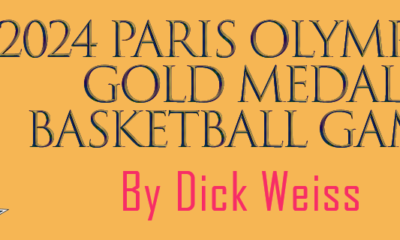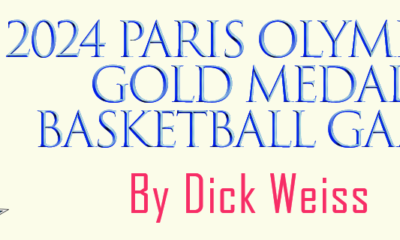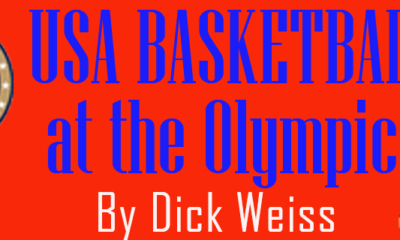 SANTA CRUZ de TENNIFE, Canary Islands—This year’s Chinese women’s national basketball team mirrors that Asian giant with a population of 1.38 billion in its passion for the sport.
SANTA CRUZ de TENNIFE, Canary Islands—This year’s Chinese women’s national basketball team mirrors that Asian giant with a population of 1.38 billion in its passion for the sport.
The Chinese, which played Team USA competitively in a 100-88 Group D loss, had another huge breakthrough Wednesday, beating a solid, previously seemingly unbeatable Asian rival Japan, 88-81, for the first time in eight years to advance to the quarterfinals of the Women’s World Cup, where they will play established international power Australia Friday night at San Cristobal Arena in nearby la Laguna.
No one saw this coming. But the dynamics of the sport are changing and there are newcomers like China and Nigeria—the first team from Africa to qualify for a World Cup quarterfinal—who are suddenly primed to challenge Team USA for global dominance.
The quarterfinal times are set. Belgium will play France at 8:30 a.m. EDT. Canada will play Spain at 10. The USA will play Nigeria at 6:30am USA Eastern time and China will play Australia at 2pm.
The Chinese, who have six players who are 6-3 or taller, have raised a lot of eye brows in this event. They have five quality players, including 6-9 center Han Xu, the 18-year old prodigy from Xinjuang Women’s team who scored 20 points while collecting five rebounds and rejecting two shots. In the final seconds, as Han left the court to an extended applause from a crowd of 1,979, she placed her hands together, smiled and bowed toward each side of the court.
“She was hard to deal with,’’ USA national coach Dawn Staley said of Han. “One, because she’s so efficient on the outside. She reads defenses extremely well. We had to make several adjustments to how she was performing out there. Fortunately, we have a lot of big players we can rotate on her to give here different looks. But you can see that at the end of the day, she had a pretty good day against us.”
Han only played 10 minutes and 40 seconds against Japan and finished with just one field goal, 5 points and 4 rebounds.
But the Chinese, who are ranked 10th globally by FIBA, have multiple offensive weapons– 6-0 small forward Ting Shao, 5-9, point guard Lewi Yang, 6-7, 19-year old center Yuweu Li and 6-3, power forward Sijing Huang. Yang, Li and Huang all play for the Guandong women’s team.
The four combined to shoot a sizzling 27-for-37. Shao and Lewi each scored 17 points and the versatile Huang, who finished with 14 points, 9 rebounds and 7 assists.
China, which hit nine 3-pointers, including four by Yang, was able to use its size and strong outside shooting to beat Japan. Japan trailed by nine with 3:20 left in the fourth quarter before cutting the deficit to two on a layup by point guard Nako Motohashi with 1:27 left. Li then answered with a basket to make it a two-possession game and Japan never got any closer. The 5-5 Motohashi finished with 25 points.
“Japan are a very good team,’’ Shao said. “We played each other in the FIBA Women’s Asia Cup last year and we lost so we wanted to beat them. We prepared for this game, not just this year, but for a number of years and we played hard. They were very good at the beginning, but we stuck with our pace and our style. We did our best and got the win.’’
For Shao, it was the end of a long, frustrating seven-year curse. The 28-year old Shao joined the national team during a difficult transition period with the retirement of a veteran core of players who had long been Asia’s No. 1 team. There was a sense of relief in her voice and well as the excitement of playing against perennial Olympic medal contender Australia and its dominant 6-8 center Liz Cambage, who has played professionally in China and the WNBA and leads the tournament in scoring with 20 points in three games as the Opals finished 3-0 in Group A competition.
A win would give China its first appearance in the semi-finals since the 1994 Worlds. “We have a lot of players who are very young,’’ Shao admitted. “Maybe they will be nervous, but I will tell them to relax, enjoy it and just play and enjoy the game.’’
Dick Weiss is a sportswriter and columnist who has covered college football and college and professional basketball for the Philadelphia Daily News and the New York Daily News. He has received the Curt Gowdy Award from the Naismith Basketball Hall of Fame and is a member of the national Sportswriters Hall of Fame. He has also co-written several books with Rick Pitino, John Calipari, Dick Vitale and authored a tribute book on Duke coach Mike Krzyzewski.









